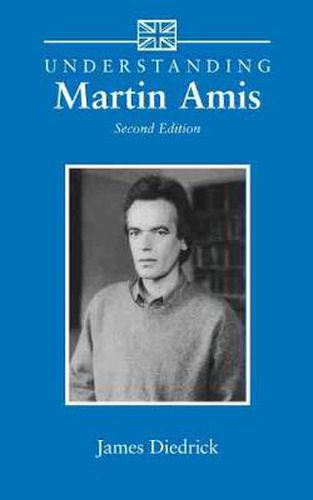Readings Newsletter
Become a Readings Member to make your shopping experience even easier.
Sign in or sign up for free!
You’re not far away from qualifying for FREE standard shipping within Australia
You’ve qualified for FREE standard shipping within Australia
The cart is loading…






Diedrick analyzes an increasing cultural conservatism in Amis’s work, rooted in Amis’s relationship with his father, the novelist Kingsley Amis. During his early career, the younger Amis opposed his father’s political and aesthetic conservatism. But his opposition has given way to frequent expressions of political and literary solidarity. Diedrick shows how this filial relationship continues to shape the son’s outlook and writing. Diedrick also identifies two complementary impulses in Amis’s work. The first is journalistic and satirical, expressed in an incisive wit aimed at contemporary social realities. The second is aesthetic, manifesting a Nabokovian love of verbal play and formal experimentation. Besides analyzing the ways Amis’s fiction forges the topical into the literary, Diedrick argues for the importance of Amis’s considerable journalistic oeuvre and provides close readings of his non-fiction collection and his uncollected essays and reviews.
$9.00 standard shipping within Australia
FREE standard shipping within Australia for orders over $100.00
Express & International shipping calculated at checkout
Diedrick analyzes an increasing cultural conservatism in Amis’s work, rooted in Amis’s relationship with his father, the novelist Kingsley Amis. During his early career, the younger Amis opposed his father’s political and aesthetic conservatism. But his opposition has given way to frequent expressions of political and literary solidarity. Diedrick shows how this filial relationship continues to shape the son’s outlook and writing. Diedrick also identifies two complementary impulses in Amis’s work. The first is journalistic and satirical, expressed in an incisive wit aimed at contemporary social realities. The second is aesthetic, manifesting a Nabokovian love of verbal play and formal experimentation. Besides analyzing the ways Amis’s fiction forges the topical into the literary, Diedrick argues for the importance of Amis’s considerable journalistic oeuvre and provides close readings of his non-fiction collection and his uncollected essays and reviews.